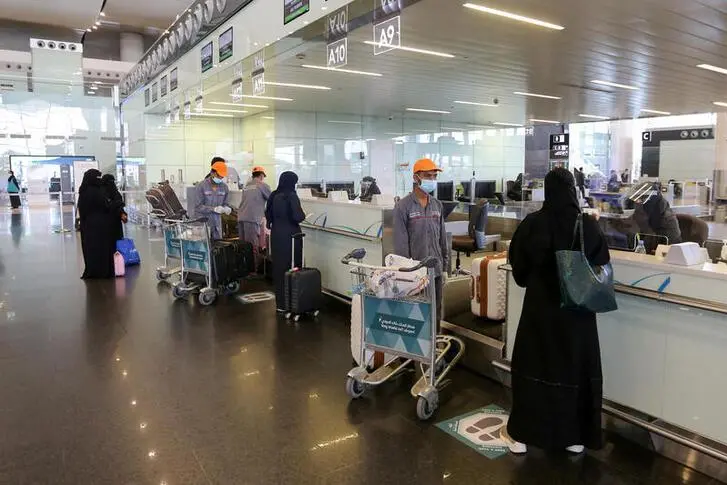PHOTO
Saudi Arabia and Qatar will see inbound flight arrivals soar ahead of pre-pandemic levels in the first quarter of 2023, as they see boosts from an ambitious tourism strategy and growth in global profile following the FIFA World Cup 2022.
Data from travel insights company ForwardKeys showed that international inbound air travel to Saudi Arabia, which has a diversification strategy including a focus on tourism, will be up by 83% based on current flight bookings in the first quarter of 2023 compared with Q1 2019.
Travel from the US and UK will be up by 147% and 121%, respectively, Forward Keys said.
International arrivals to Qatar, which has just completed its hosting of the FIFA World Cup, will rise by 31% in Q1 2023 compared with the equivalent quarter in 2019, or several months before the onset of the COVID-19 pandemic.
The difference is particularly marked for inbound travel to Qatar from the US, which will be up by 257% based on current bookings, while travel from the UK will be up by 29%.
Meanwhile, in the UAE, international inbound travel will be down 11% in Dubai compared with Q1 2019, down 4% from the US and down 29% from the UK.
Abu Dhabi will fare better compared with pre-pandemic levels, with international inbound travel up by 50%, up 36% from the US and up 7% from the UK.
For the GCC overall, international inbound travel will be up by 11%, with travel from the US rising by 39% and from the UK expected to show 0% change.
Dubai has been seen as a post-pandemic tourism success story, welcoming travellers back earlier than many other global cities after the initial stages of COVID-19.
The UAE also expected a huge boost in tourism numbers in the current quarter, Q4 2022, as football fans chose the country as an onward destination after attending World Cup matches in Qatar.
However, Olivier Ponti, VP Insights, ForwardKeys, said other Gulf nations are now following its success by attracting higher tourism numbers than prior to the pandemic.
“While Dubai is the most iconic case study of tourism success, we are now seeing other Gulf nations follow suit. The investment by Qatar in hosting the FIFA World Cup has given the country a global profile,” he said.
“Abu Dhabi has been building a portfolio of world class visitor attractions; and Saudi Arabia is embarking on an ambitious, visionary strategy to make tourism a major new pillar of its economy.”
Is the weak pound playing a role?
The UK is currently experiencing a cost-of-living crisis due to soaring energy costs and high inflation, and the weak pound against the Gulf’s dollar-pegged currencies could be dampening travel demand.
Refinitiv data show that while the pound has recovered against the dollar since its all-time lows in September 2022, it is now at $1.21 today, which is on a par with its 2019 low point.
The pound’s high points in 2019 were in February and December, when it reached $1.32, while its highest point in the last five years was in May 2021, when it reached $1.42, after which it trended downwards until September this year.
(Reporting by Imogen Lillywhite; editing by Cleofe Maceda)
imogen.lillywhite@lseg.com





















